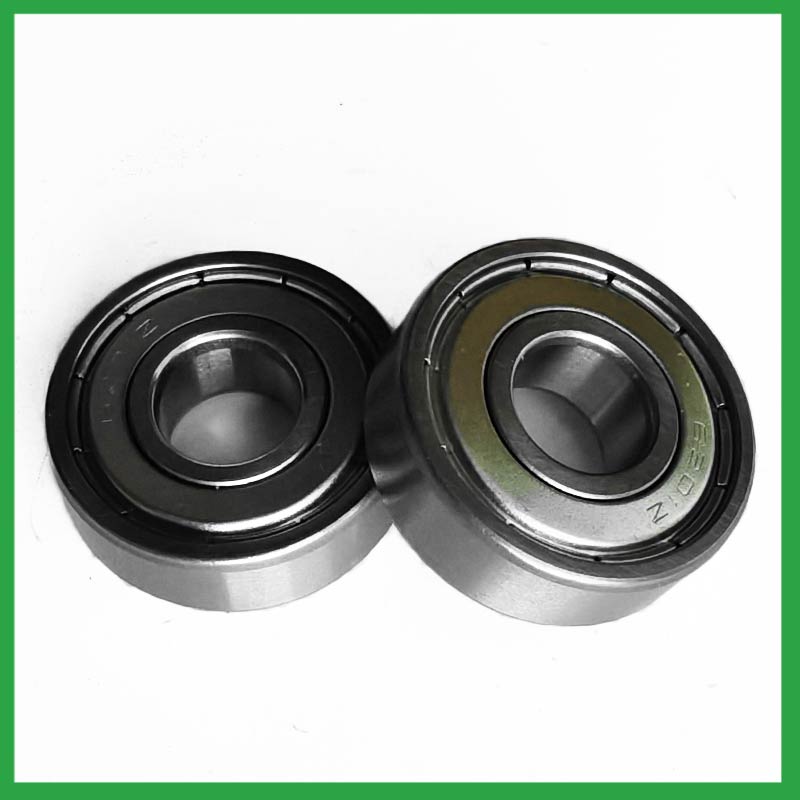PRODUCTS
CONTACT US
Ningbo Nide International Co., Ltd.
一一
· Contact person:Jack Zeng
· Mob/Whatspp/WeChat:0086-13738869026
· Email:emarketing@nide-group.com;marketing4@nide-group.com
· Add:No. 169, Wohushan Road, Daqi Subdistrict, Beilun District, Ningbo, China
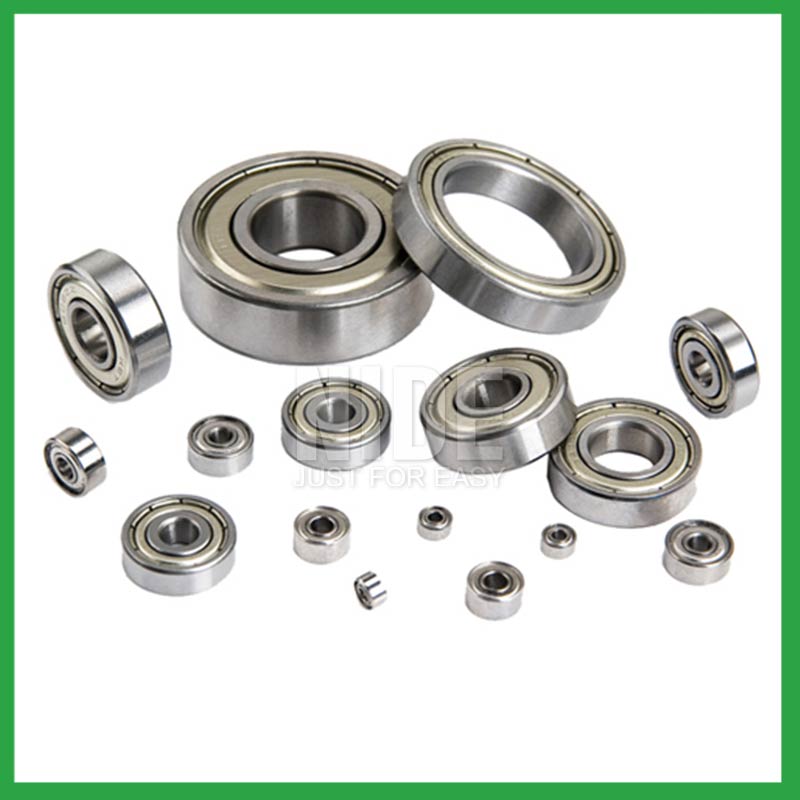
Nide team could manufacture ball bearing as per customer’s drawing and samples.
If customer only has samples, we could also design drawing fo r our customer.
We also provide customized service.
Our ball bearing is widely applied the different industrials.
Ningbo Haishu Nide International is a leading bearing manufacturing and trading company committed to providing high-quality and reliable bearing products and excellent services to global customers. Product scope: We offer fan,insulation paper,magnet,carbon brush,motor cover and lamination,commutator, etc. We also offer customized bearing solutions to meet specific customer requirements and applications. Quality control: We attach great importance to product quality, adhere to international standards and strict quality control processes. Our production facilities are equipped with the most advanced equipment and technology, and our bearings undergo strict testing and inspection to ensure they meet the highest quality standards.
We have obtained ISO9001 certification to ensure consistent quality throughout the entire product line. We strive to ship on time and flexibly process orders to ensure a seamless experience for our esteemed customers. As an international trading company, we cater to global customers. Our products are exported to various countries and regions, and we have established strong partnerships with reliable international logistics companies.
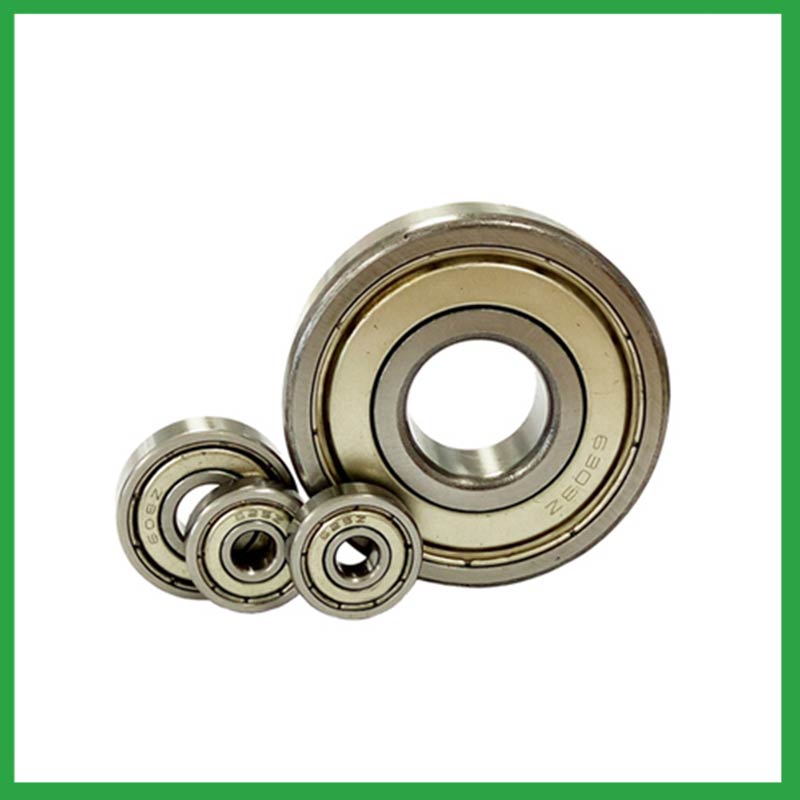
| Parameter | Information |
| Product Name | nachi ball bearing |
| Brand Name | Nide |
| Place of Origin | Ningbo,China |
| Type | Ball |
| Material | ceramics, etc. |
| Sample | Avaible |
| Warranty | 3months-1year |
| Lubrication | Dry/ Oil |
| Application | aviation engines, etc. |
| Port | Ningbo/Shanghai |
| Size(mm) | customize |
| Export Country | Argentina,Brazil,South Korea,Tajikistan,Malawi,Cook Islands,Juan de Nova Island,Sierra Leone...etc |
| Export region | Oceania,Asia,Europe... |
| Certification | ISO 9001 Certification,CE-stator coil forming machine,CE-stator coil winding machine,etc |
| Precision Rating | as per customer's requirement |
| Feature | Low Noise,Simple structure...etc |
| Packaging Details | Suitable for sea transportation |
| Color | gray+customized |
| Seals Type | Rubber seals |
| Service | Prompt Delivery |
| Supply Ability | 100000-500000 Piece/Pieces per Month |
| Lead time (days) | 15-20 (To be negotiated) |
Please note: The above table data is for reference only. For specific information, please contact us.
The precision range of nachi ball bearing is from ABEC7 to ABEC9, with a particle size of 0.3 μ m. Among them, ABEC9's ball bearings have the best precision range and are widely used in the electronics industry, precision measurement industry, and so on.
During the disassembly process, the outer shell should be kept intact to avoid unnecessary damage;
When replacing installation components, attention should be paid to the accuracy of the support components to prevent deformation;
During the disassembly process, attention should be paid to protecting the surface quality of the ball bearing to ensure its performance;
During the operation, attention should be paid to removing surface dust to ensure the quality of the ball bearing.
Ball bearings have many advantages, making them highly competitive in the market.
Firstly, they are very durable and have good wear performance, making their service life longer than many other types of bearings.
Secondly, they are easy to install and can provide low friction performance in various applications.
Thirdly, they require a relatively low level of maintenance, making them cost-effective.
In addition, compared to many other types of bearings, their purchase cost is relatively low, making them an economical choice.
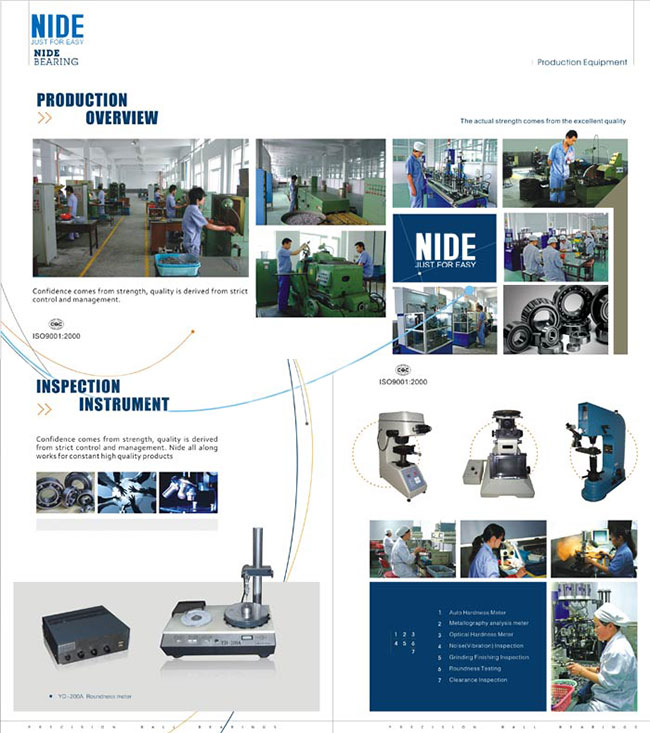
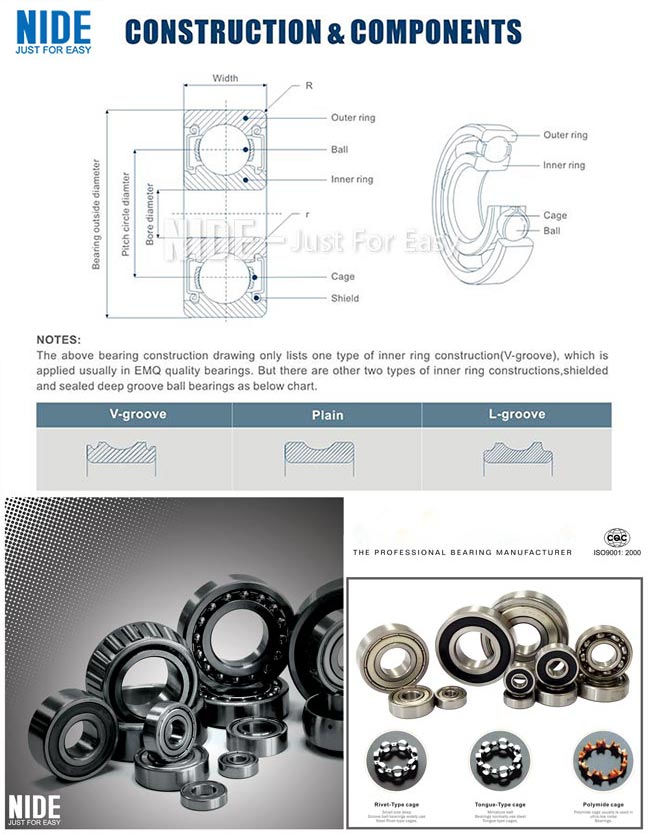
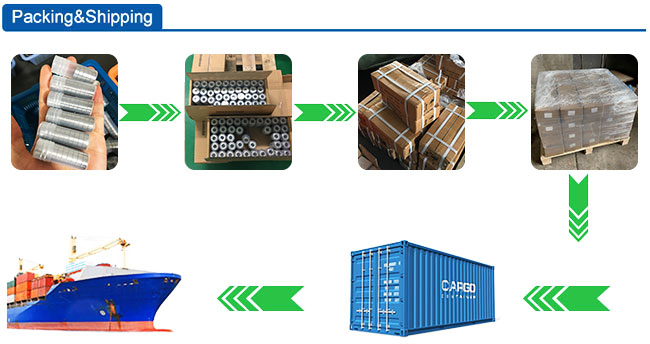
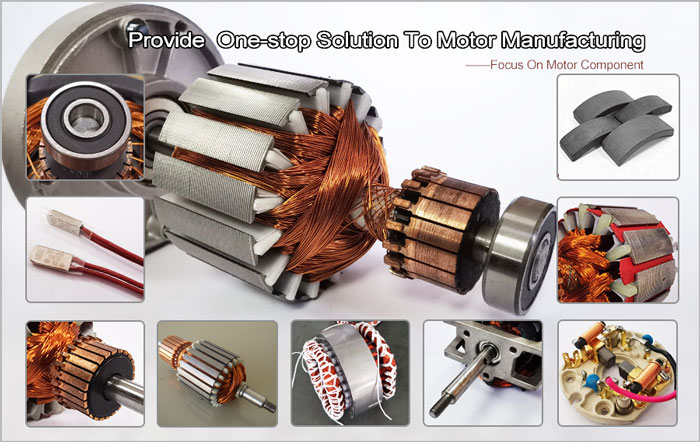
nachi ball bearing---FAQs Guide
2.Can nachi ball bearing be customized with special coatings or treatments to meet specific industry standards or regulatory requirements?
3.What are the common materials used in nachi ball bearing manufacturing?
4.Are there specific nachi ball bearing designed for applications in the aerospace and aviation industries, and what standards do they adhere to?
5.Are there ceramic nachi ball bearing designed for specific applications requiring high-temperature or corrosion resistance?
6.As a nachi ball bearing manufacturer,Your product certifications?
7.What are the considerations for selecting sealed or shielded nachi ball bearing to protect against contamination and retain lubrication?
8.Can nachi ball bearing operate in high-temperature environments like industrial ovens or furnaces, and how are they protected from heat-related damage?
9.How do preload adjustments in nachi ball bearing affect their performance and suitability for high-precision tasks?
10.How do manufacturers ensure the quality and reliability of nachi ball bearing through material selection and precision machining?
11.What is a ball bearing?
12.About nachi ball bearing,What about the lead time?
13.What are the after-sales services available for nachi ball bearing?
14.Are there ongoing research and development efforts aimed at improving nachi ball bearing materials, designs, and lubrication techniques?
15.What is the load distribution within a nachi ball bearing, and how does it vary between different bearing configurations?
16.What are the nachi ball bearing product skill training options?
1.Are there miniature nachi ball bearing designed for use in precision instruments and small-scale mechanisms?
Miniature bearings, despite their small size, play a significant role in various industries and applications. These compact powerhouses, typically measuring less than one inch in outer diameter, offer exceptional precision, durability, and reliability. Miniature bearings find extensive use in precision instruments and robotics.
2.Can nachi ball bearing be customized with special coatings or treatments to meet specific industry standards or regulatory requirements?
Yes, nachi ball bearing can be customized with special coatings or treatments to meet specific industry standards or regulatory requirements.
1. Corrosion-resistant coatings: These coatings are used to protect the bearings from corrosion caused by exposure to moisture, chemicals, and other corrosive substances.
2. High-temperature coatings: These coatings are used to improve the thermal stability and performance of bearings in high-temperature environments.
3. Food-grade coatings: These coatings are specially designed for applications in the food and beverage industry, where bearings come into contact with food, beverage, or pharmaceutical products.
4. Anti-static and non-conductive coatings: These coatings are used to dissipate static electricity, which can cause damage to electronic components.
5. Specialized lubrication treatments: Bearings can be treated with specialized lubricants that meet specific industry standards or regulatory requirements.
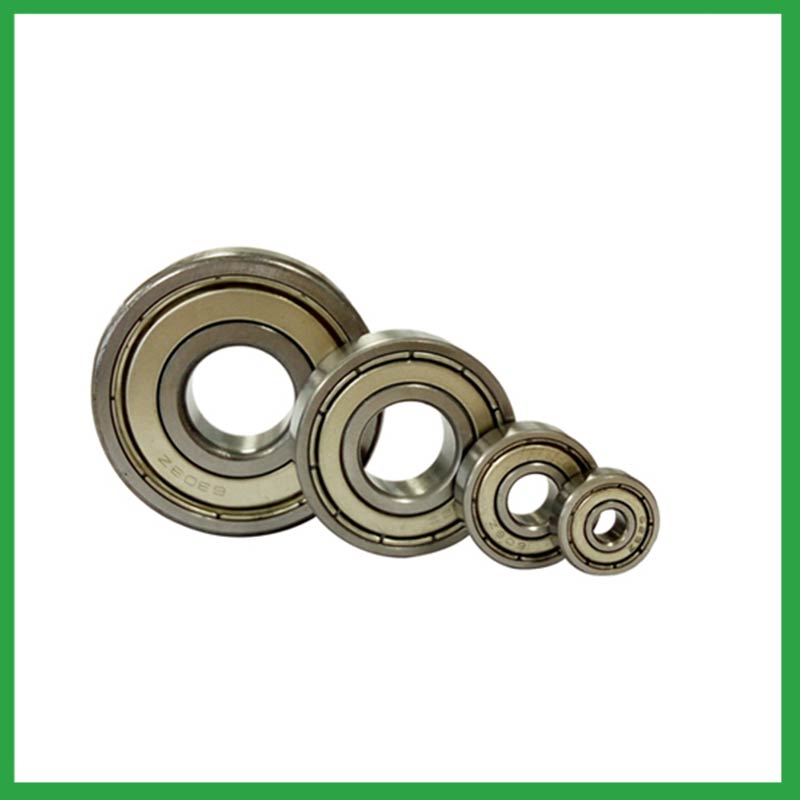
3.What are the common materials used in nachi ball bearing manufacturing?
Most nachi ball bearing are made of a type of steel known as high carbon chromium steel, often called chrome steel. This is used for reasons of cost and durability. Bearings are also made from other materials such as stainless steel, ceramics and plastic.
4.Are there specific nachi ball bearing designed for applications in the aerospace and aviation industries, and what standards do they adhere to?
Airframe control nachi ball bearing are specialized bearings tailored for aircraft structures, particularly control systems and surfaces. Designed for low-speed oscillatory applications, they offer precision and support, effectively managing misalignments and flight-induced stresses.
Airframe Control bearings are lightweight, corrosion-resistant, grease-lubricated, and are sealed on most occasions. They come in precision grades for running accuracy.
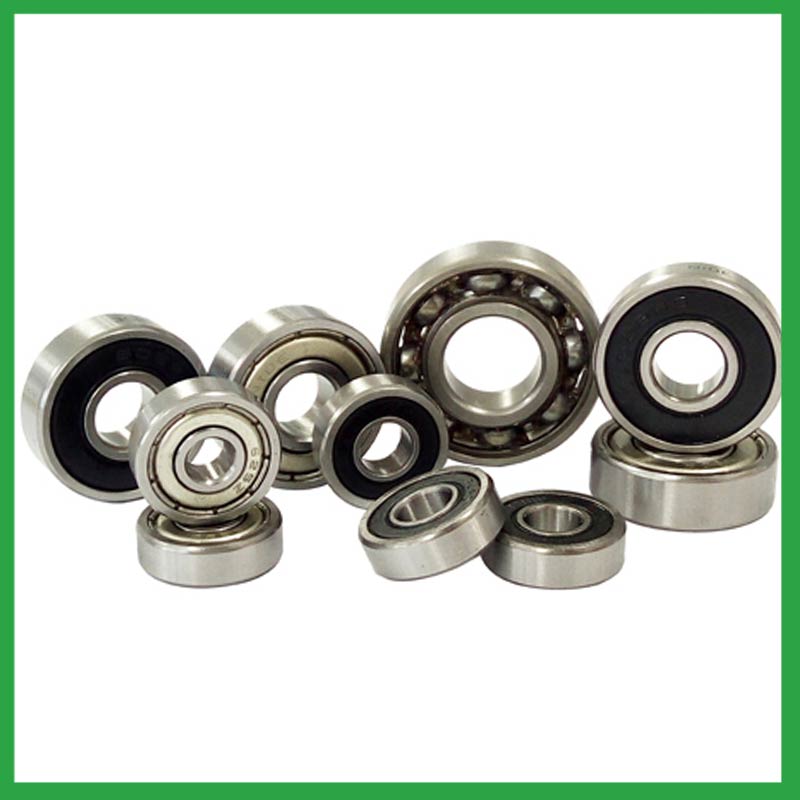
5.Are there ceramic nachi ball bearing designed for specific applications requiring high-temperature or corrosion resistance?
Ceramic nachi ball bearing are a special type of bearing made of ceramic materials, offering superior wear resistance, corrosion resistance, and high-temperature performance. They provide excellent performance in applications requiring high speeds, high temperatures, and resistance to corrosion.
6.As a nachi ball bearing manufacturer,Your product certifications?
ISO9001:2015 certificate,ISO 9001 Certification,CE-stator,etc.
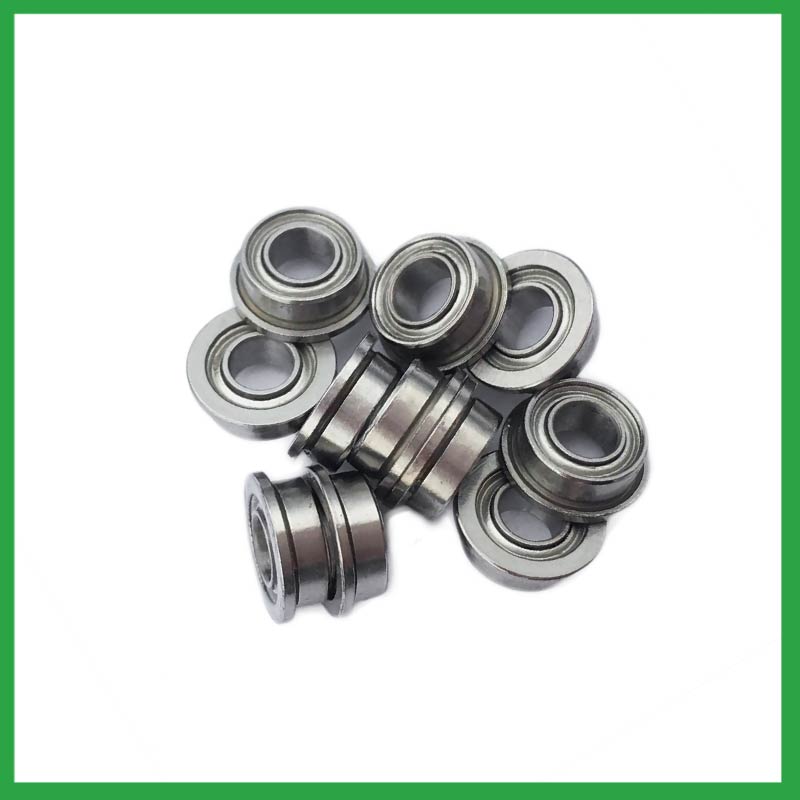
7.What are the considerations for selecting sealed or shielded nachi ball bearing to protect against contamination and retain lubrication?
First, the environment in which your nachi ball bearing operate in can help you identify potential contaminants, allowing you to select your shields or seals accordingly. For example, shielded bearings have a gap that can allow finer contaminants or water from washdown applications to enter the bearing and get into the raceways.The challenge for sealing bearings is to seal the bearing by protecting the bearing from contaminants and running efficiencies.
8.Can nachi ball bearing operate in high-temperature environments like industrial ovens or furnaces, and how are they protected from heat-related damage?
nachi ball bearing are capable of working at temperatures up to +842°F (+450 °C). Special lubricants, seals and coatings make this possible by protecting the ball bearings from heat damage.
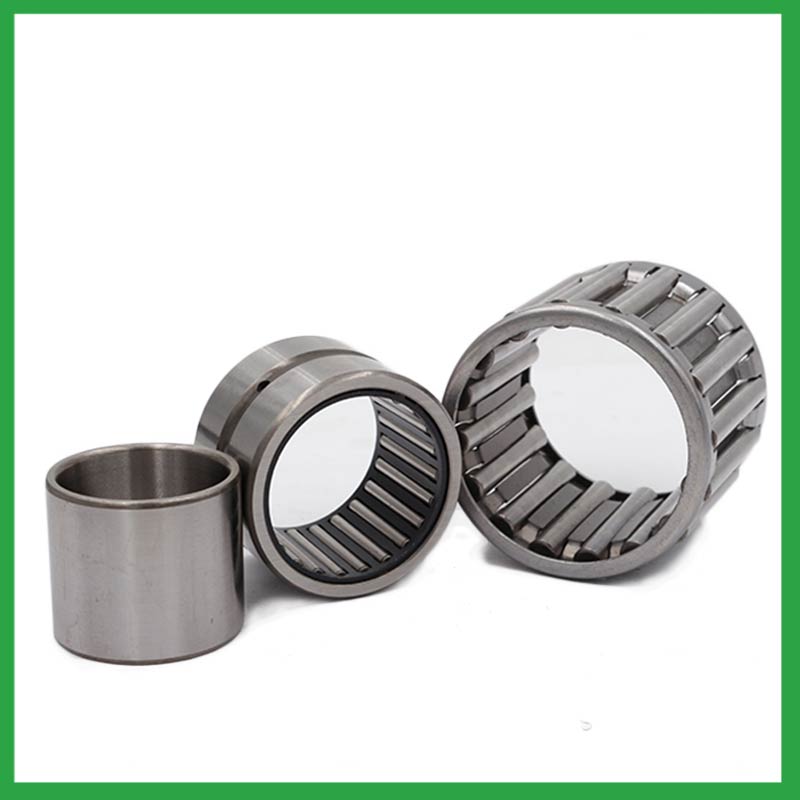
9.How do preload adjustments in nachi ball bearing affect their performance and suitability for high-precision tasks?
Benefits of Preloading a Bearing
Optimizes the ball spin to roll ratio.
Increases the rigidity of an application.
Protects from excessive ball skidding.
Decreases application vibration and sliding friction.
High running accuracy (even if load conditions keep changing)
Increases bearing load capacity.
10.How do manufacturers ensure the quality and reliability of nachi ball bearing through material selection and precision machining?
High-precision measuring instruments, such as micrometers and gauges, are used to check the dimensions of the rings and balls to ensure they meet tight tolerances. Surface Finish Inspection: Surface finish is assessed using profilometers to ensure the required smoothness and low friction characteristics.
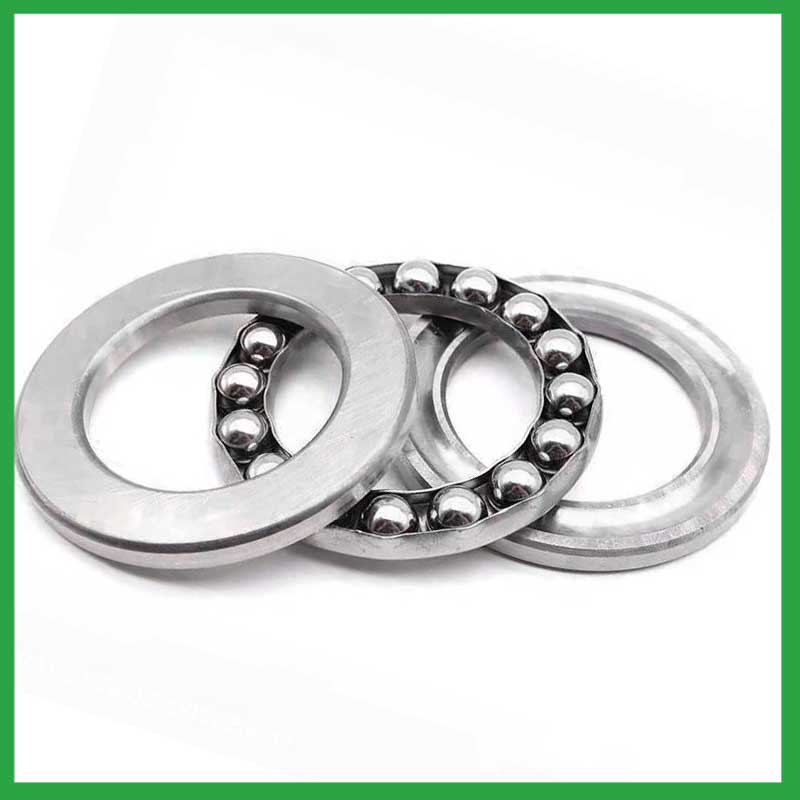
11.What is a ball bearing?
A ball bearing is a type of rolling-element bearing that uses balls to maintain the separation between the bearing races.
The purpose of a ball bearing is to reduce rotational friction and support radial and axial loads. It achieves this by using at least two races to contain the balls and transmit the loads through the balls. In most applications, one race is stationary and the other is attached to the rotating assembly (e.g., a hub or shaft). As one of the bearing races rotates it causes the balls to rotate as well. Because the balls are rolling they have a much lower coefficient of friction than if two flat surfaces were sliding against each other.
Ball bearings tend to have lower load capacity for their size than other kinds of rolling-element bearings due to the smaller contact area between the balls and races. However, they can tolerate some misalignment of the inner and outer races.
12.About nachi ball bearing,What about the lead time?
3-7 days for samples, 3-4 weeks for mass production.
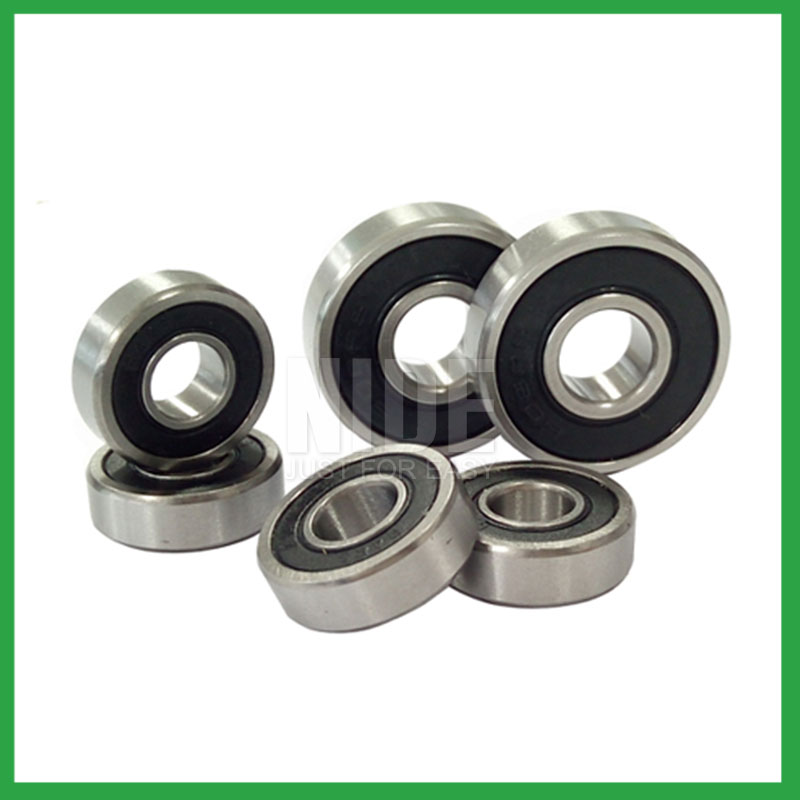
13.What are the after-sales services available for nachi ball bearing?
If you find problems or failures in the assembly or use of the bearings , which needs to consult and other services, please feedback to Nide International in time.
14.Are there ongoing research and development efforts aimed at improving nachi ball bearing materials, designs, and lubrication techniques?
A custom nachi ball bearing can satisfy almost any customer’s needs. Your application may need a needle roller or ball bearing, a radial or angular contact design, a plain carbon steel bearing with anti-corrosion coatings or stainless steel, a thrust bearing or a spherical bearing, tight or loose radial play, sealed or non-sealed designs
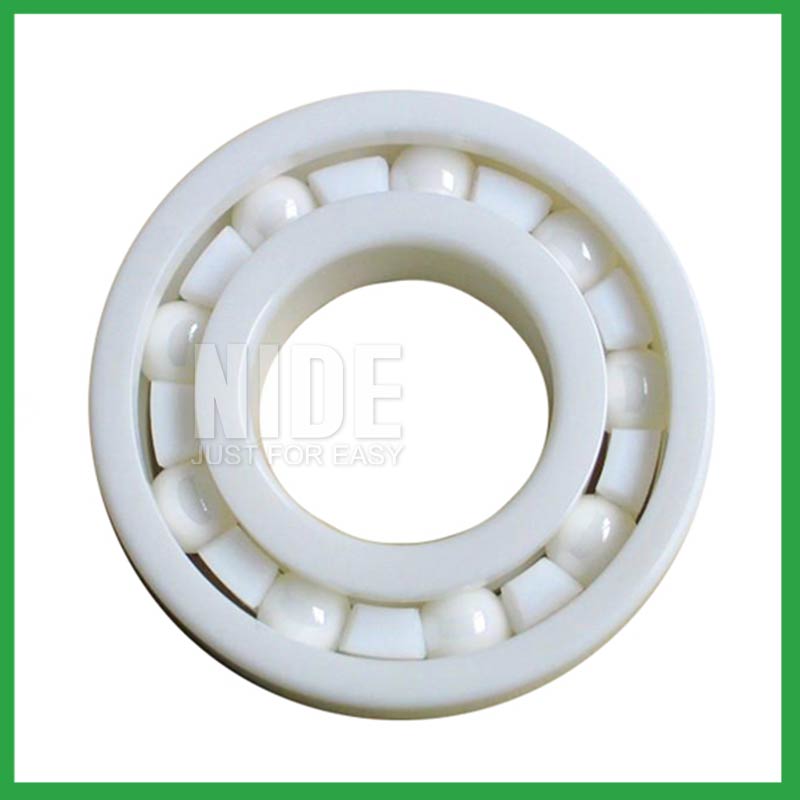
15.What is the load distribution within a nachi ball bearing, and how does it vary between different bearing configurations?
The load distribution between the rolling elements and raceway is crucial in performance evaluation of rolling element bearings. Determine the load distribution by measuring the strain response at the bearing surface with a notched housing. Finite element analysis shows that the introduction of notches does not affect the load distribution. An experimental system was developed to investigate the load distribution in a cylindrical roller bearing. The experimental static load distribution agrees well with the theoretical calculation. The dynamic load at specific position of load zone reflects the manufacture difference among rollers and dynamic balance of distributing loads.
16.What are the nachi ball bearing product skill training options?
Quality comes from being controlled rather than be done. On the basis of the escalating production equipment and optimized process, Nide spare no efforts and keeps improving for quality control. Quality assurance covered with system, technology and human resources are in full swing.
